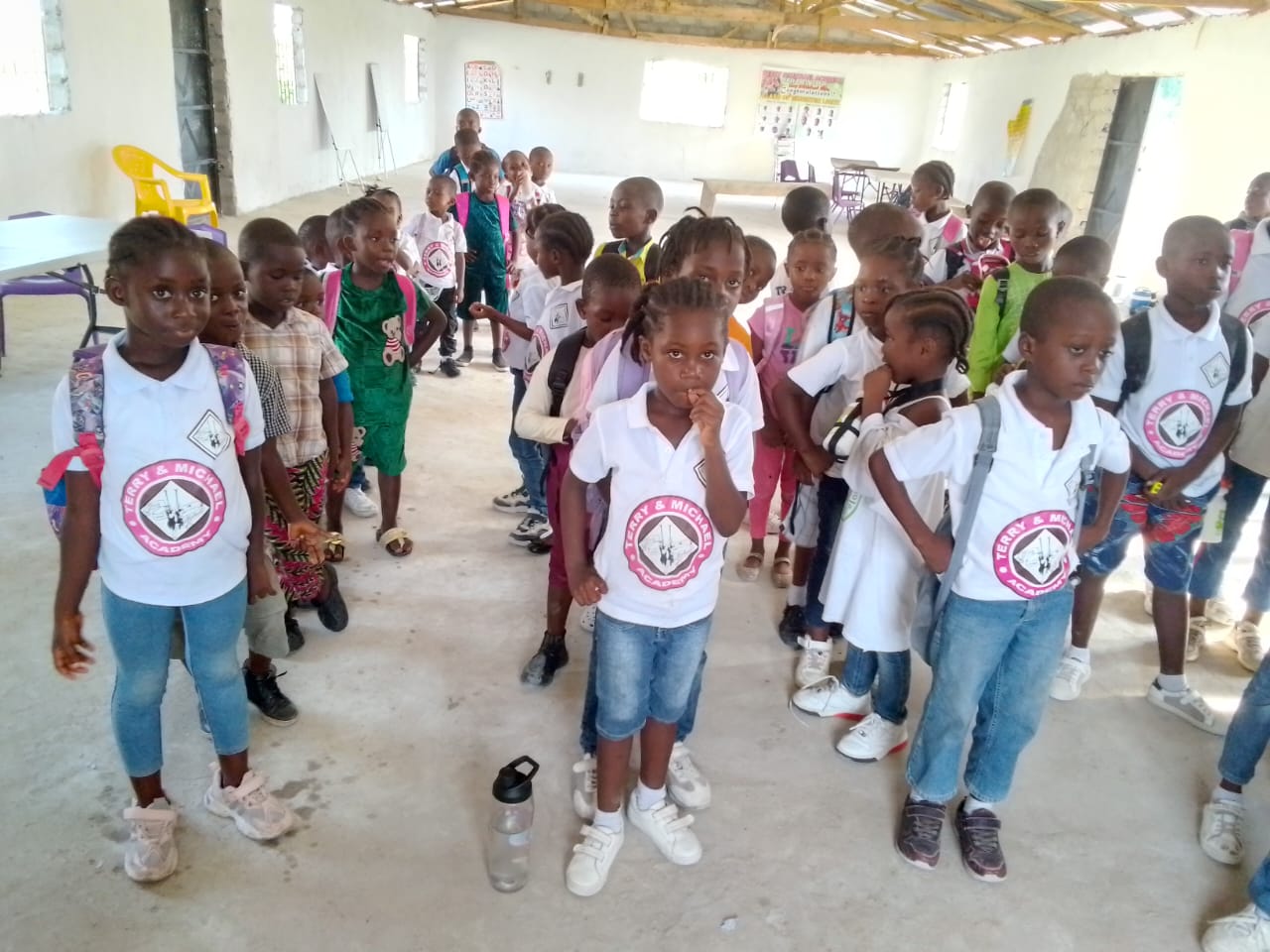When facing business troubles, it’s tempting and easy to blame the other — the economy, the competition, the market, the trends. Indeed, these all impact a business, sometimes carrying it higher, often battering it down. But we must always think inward to ourselves: what’s my part in what’s going on?
Such thoughts were hardly on my mind last September when we received a panicked note from Sonnie, Directory of the Terry & Michael Academy in Lower Johnsonville, Liberia. She wrote to say that the school year had started with only 10 students. Another school had opened nearby, and doesn’t charge tuition, as it got funding from some big American organization. Whereas we were hoping to have over 100 students this year, everyone in the village was putting their kids in that other school. Most distressing, indeed.
Sonnie’s school’s first graduation ceremony was but two months earlier in July, and the structure of a new schoolhouse was completed over the summer. Terry and I were amidst organizing a shipment of desks and chairs and other supplies to complete the building — and for what, ten kids?
From my porch in Arlington, Virginia, not panicking was a luxury not afforded to our friends there who faced the problem directly.
The school seems a phantasm, but an old shipping container plopped on a sandy lot next to someone’s abandoned, half-built house and unconnected to water or electricity. The project itself came of the tragedy of civil war, the dream of a young lady who taught herself to read, then sat in the middle of rocky soccer fields and read whatever books she could find to children who had never been to school.
Sonnie and her team had made the first school year happen out of nothing. But now, heading enthusiastically into the school’s second year, and following the tough, tough work of training new teachers, coaching illiterate parents, and shepherding unschooled children, all the masterly problem-solving, scrapping together every possible resource, from bamboo tents to intermittent cellular broadband, it all seemed lost.
“Congratulations,” I told Sonnie, you taught the community that it needs a school. Wonderful news!”
Not much of a complement when that someone else is driving your own school into the ground.
Then I asked her, “So what does your school offer that the other one doesn’t? Why would anyone want to put their kid in your school, anyway?”
Distressed over how to compete with “FREE,” she thought about it a minute, then, with her tone lit up, went into a deserved brag: “We keep the children all day so that the parents can work. And we have real teachers who care, and we have professional development and standards.” Exactly, I told her. “Let that other school be its own problem, not yours. Do what you do and keep doing it better. You’re the best.”
A week or so later, Sonnie wrote that there were five more students, then shortly after they were up to fifty and now sixty or more. And the desks and chairs are finally on their way — and hoping that they won’t be enough for all the new students!
Do what you do, Sonnie, and keep doing it better! We can all learn from you.
– Michael

